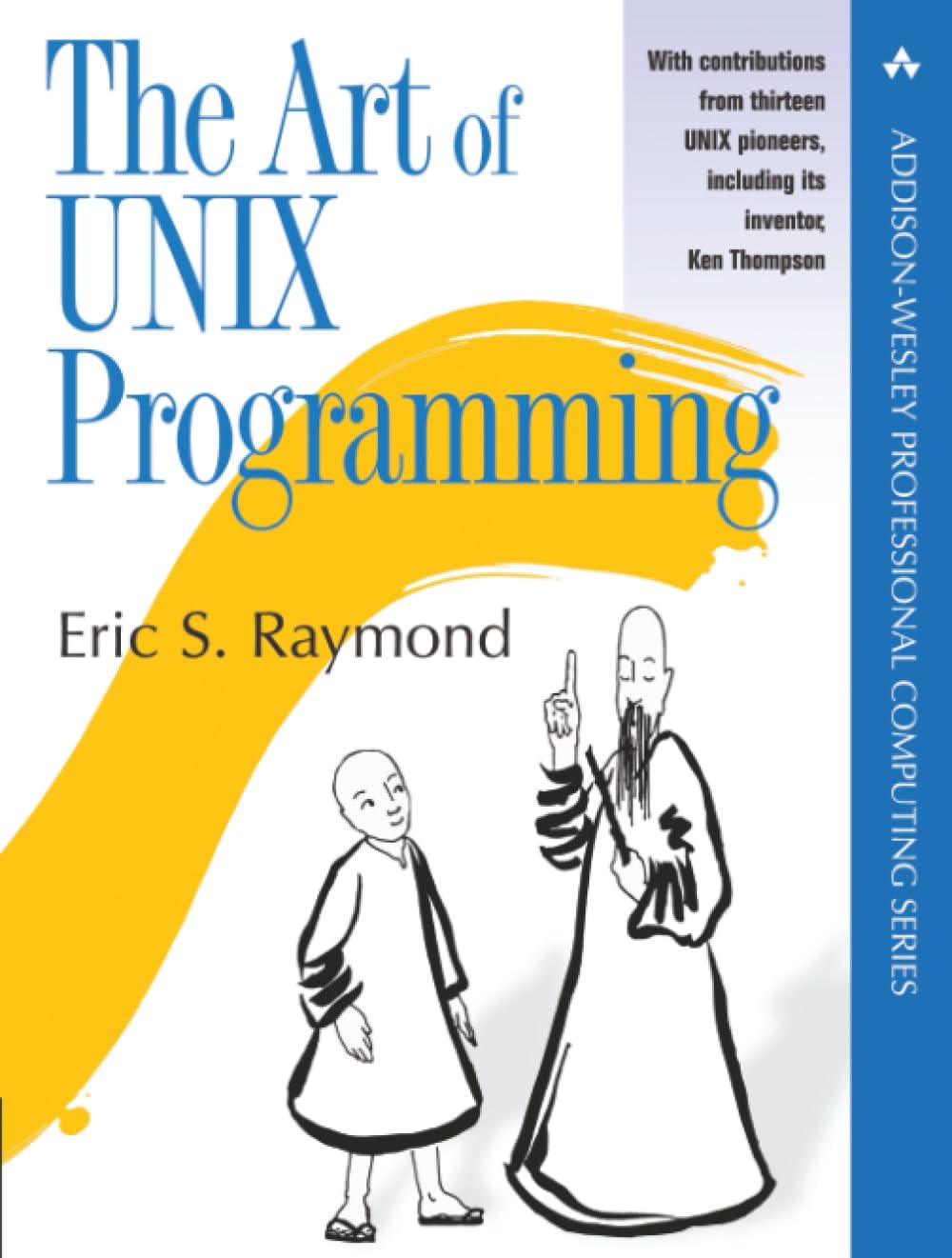The best reference I've found on this is The Art of Unix Programming, which was published in 2003:
https://www.amazon.com/UNIX-Programming-Addison-Wesley-Profe...
The book is also online for free:
Command Line Options: http://www.catb.org/~esr/writings/taoup/html/ch10s05.html
User Interface Design Patterns: http://www.catb.org/~esr/writings/taoup/html/ch11s06.html
Still it's nice to see this knowledge circulating!
Joel Spolsky's 2003 review of this book: https://www.joelonsoftware.com/2003/12/14/biculturalism/
The question isn't shell OR Python.
My shell scripts call Python scripts, many of white I wrote myself. That is working as intended.
They also call C programs, C++ programs and R programs. And put JavaScript programs in various places.
----
I guess this is a huge misconception about shell that I have to write a blog post about.
https://news.ycombinator.com/item?id=24083764
I'm often asked this about Oil [1]: Why do you want to write programs in shell?
That's not the idea of shell. The idea is that I write programs in Python, JavaScript, R, and C++ regularly, and about 10 different DSLs (SQL, HTML, etc.) And I work on systems written by others, consisting of even more languages.
I need a language to glue them together. A language to express build automation and describe deployed systems. Most big systems consist of more than one language.
Shell is the best language for that, but it's also old and crufty, with poor implementations.
When you program in shell, gcc, git, pip, npm, markdown, rsync, diff, perf, strace, etc. are part of your "standard library".
-----
If you want some concrete examples, look in the Oil repo. There are dozens of shell scripts that invoke custom tools in Python, R, and C++.
https://github.com/oilshell/oil/tree/master/benchmarks
For example, to generate this report on how much we speed up Python by translating it to C++: https://www.oilshell.org/release/0.8.3/benchmarks.wwz/mycpp-...
The tables are manipulated by R code, and shell/Python/CommonMark generates the HTML.
-----
Another example is that the release page is essentially a huge shell script: https://www.oilshell.org/release/0.8.3/
This page and all the linked pages are generated by: https://github.com/oilshell/oil/blob/master/devtools/release...
------
If you don't understand why shell should call Python and C, I recommend reading The Art of Unix Programming
http://www.catb.org/~esr/writings/taoup/html/
https://www.amazon.com/UNIX-Programming-Addison-Wesley-Profe...


http://www.oilshell.org/blog/2021/01/why-a-new-shell.html#sh...
tl;dr I think the main skill that is missing is being able to write a Python script that fits well within a shell script. The shell script often invokes tools written in other languages like C, Rust, JavaScript, etc. (most of which you didn't write)
Good book on this: https://www.amazon.com/UNIX-Programming-Addison-Wesley-Profe...
Online for free: http://www.catb.org/esr/writings/taoup/html/